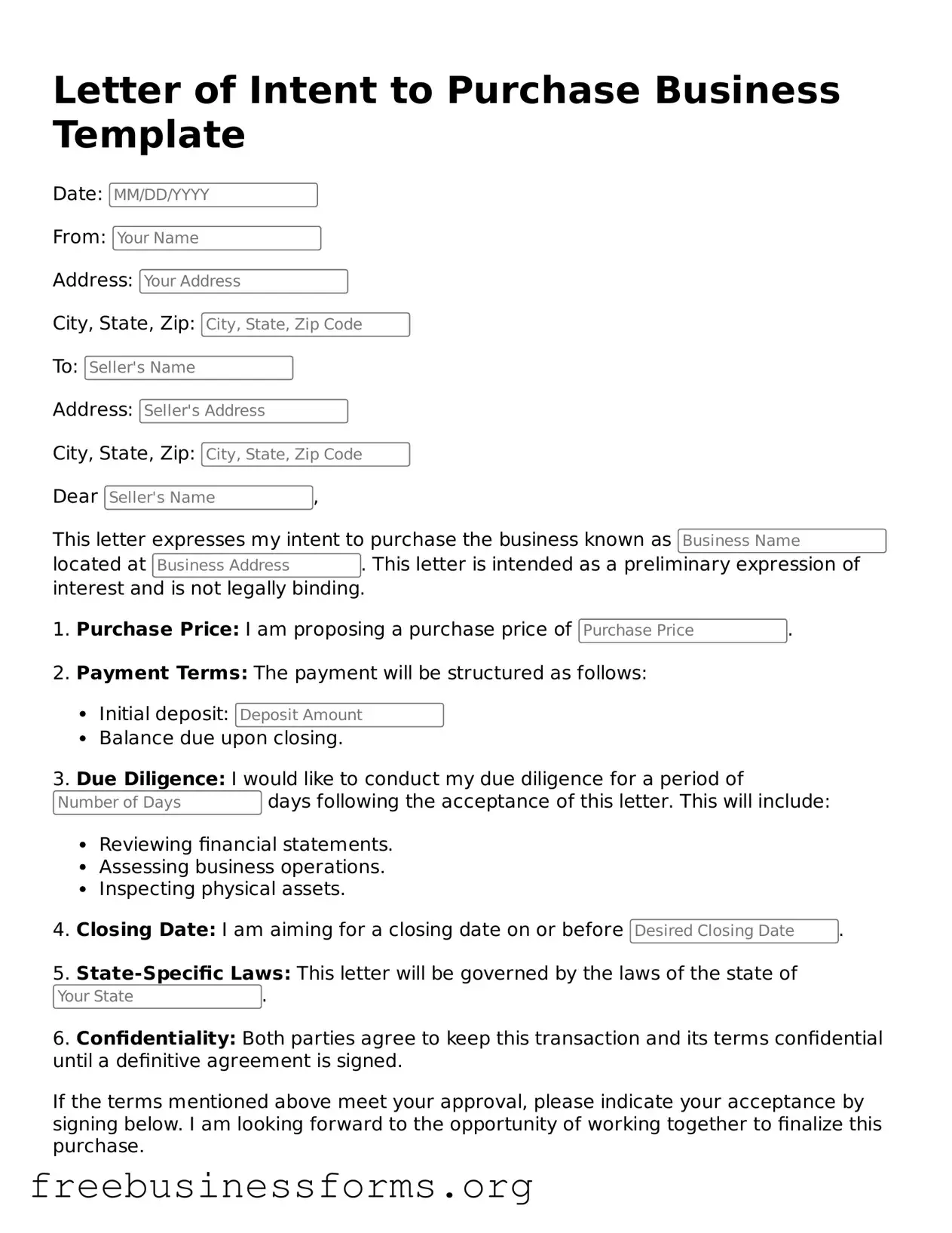Official Letter of Intent to Purchase Business Form
A Letter of Intent to Purchase Business is a preliminary agreement outlining the terms and conditions under which one party intends to buy a business from another. This document serves as a crucial first step in the negotiation process, establishing the framework for further discussions. By clearly stating the intentions of both parties, it helps to facilitate a smoother transaction and fosters mutual understanding.
Open Form Here

Official Letter of Intent to Purchase Business Form
Open Form Here

Open Form Here
or
↓ PDF File
Quickly complete this form online
Complete your Letter of Intent to Purchase Business online quickly — edit, save, download.